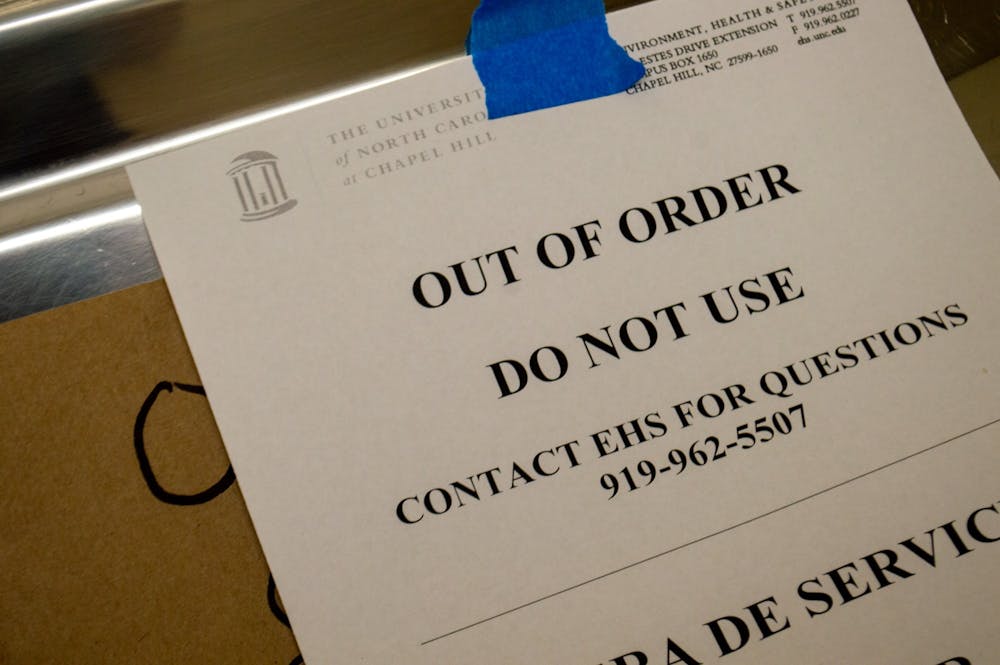The University has been working to remediate all water fixtures with detectable levels of lead since the discovery of lead in water fixtures in Wilson Library in September of 2022.
The University is currently unable to provide a timeline detailing when these repairs will be completed, according to UNC Media Relations.
At the end of March, UNC's Department of Environment, Health and Safety announced the beginning of the remediation process for all 435 fixtures that tested positive for lead. This includes repairing or replacing the lead-contaminated water sources and testing the fixtures before they are put back into service.
The U.S. Environmental Protection Agency's required threshold for taking action is 15 parts per billion of lead, but the University is working to remediate any fixture with detectable levels of lead.
According to an email statement from UNC Media Relations, there is no definitive timeline or end date for the remediation phase because there are different repairs necessary for different water fixtures at UNC.
Various other details, like staffing considerations and supply availability from outside vendors, have contributed to the indefinite timeline.
Out of the 435 fixtures that needed remediation, 252 — 58 percent — have been fixed or replaced by the University thus far.
Although there is no timeline for repairs, members of the UNC community have witnessed the remediation process taking place.
Mark Crescenzi, the department chair of the Department of Political Science, said in an email statement that the UNC facilities crew replaced at least one water fixture per floor in Hamilton Hall, which had up to 402 ppb in water fixtures in the building.



